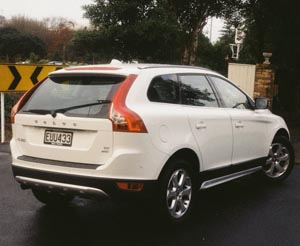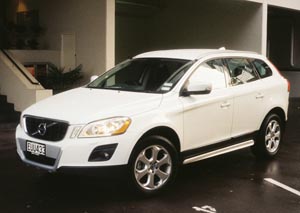|
 
EVERYWHERE SIMON
TEMPLAR LANDED, he seemed to attract
trouble. It was the sort of life to which he had been accustomed,
and the quietude that other men had would have seemed deathly dull,
about as interesting as the daily trials of the customs officer
whom he faced.
There was no point in being cavalier nowadays. While
in the past Simon might have quipped about how he was carrying cut
flowers and wines in his luggage, such lightheartedness would bring
upon bored security guards with very little to do but gain satisfaction
from delaying a passenger. It would only detract from the greater
adventures at hand, and Simon Templar was not one to miss those.
And while a fight with mere guards might be entertaining, he had
no desire to meet Chief Insp Teal of the Metropolitan Police just
yet, at least, not till the caper was well advanced. A premature
and immediate arrest was not in the Saint’s interests.
No caper, however, could take place without the right
steed, and the Saint thought to the times in the Hirondel. There
were, too, those many years in the loyal company of his Volvo 1800,
the passenger seat of which had availed itself of many a delightful
companion over the years.
He had hoped there would be such a car awaiting him
outside the airport, but Volvo had arranged something very different
in the hope that it would encourage the Saint to be of its custom
again. It was the right colour, he remarked to himself, as he wheeled
his airport trolley toward a vehicle that was considerably taller
and larger than any to which the licence plate, ST
1, had been affixed. And there would be little problem putting in
the luggage of any traveller who had the necessities that Simon
Templar had, a problem he sometimes encountered in the 1800. What
he did not expect, however, was the XC60 diesel SUV
that confronted him.
He put his matching suitcases in the boot, and dumped
his raincoat on to the back seat. He looked idly at the SUV: it
was pleasant enough and there had been a great deal of thoughtfulness
that had gone in to those sculpted lines. Climbing in—or across,
since the car was a great deal higher than what Simon was accustomed
to—his cool blue eyes looked directly at a well thought-out fascia.
‘Now, I wonder how she goes,’ the Saint thought to himself,
as the Volvo moved forward.
The performance was certainly there. The 2·4-litre D5
diesel was torquey, more so than one might expect from a large vehicle.
Volvo had said this was a compact model, but it was mere millimetres
narrower than the XC90, one that the Swedes had regarded as too
large for its own roads. Simon pressed firmly on the accelerator
to move the heavy car forward in its maiden voyage, which it covered
with a quiet hum, but the economy figures left something to be desired.
Thirty-four miles per gallon, read the trip computer—and the brochure,
which he once glanced with curiosity, said the carbon dioxide output
exceeded 200 g/km. It was time to drive more calmly, rather than
put the SUV’s collision avoidance feature to the test.
It dawned on the Saint why Volvo had picked this very
car. Simon Templar had thrown one of the many villains, who had
decided to take his chances with him, against the bonnet of the
1800. During one visit to the company for its service, he had made
a throwaway comment, the sort that he would deliver regularly, about
how much time a man would lose to his car being off the road. Not
only should the cars’ paintwork be of higher quality, it might be
useful for them to avoid obstacles, to stop errant drivers from
hurting themselves. The man at Volvo assured him that the XC60 would
do just that: it was a car that could avoid accidents by itself.
Perhaps, then, it might have been better suited to the likes of
Claude Eustace Teal, who seemed to have had a greater share of accidents
in the Met’s police cars than any other officer he knew.
The Saint drove the Volvo to the north side of Piccadilly,
to a garage that he used, for an apartment which he used regularly
in his London adventures. And therein lay another problem: the width
of the car.
The space was wide enough, but it left so little room
for the driver to alight that the Saint wondered what he might do
if he had to make a quick getaway. It was a smarter looking car
than its nearest competitors, and it was the most comfortable, the
sort of qualities that might impress Miss Patricia Holm.
‘Pat might like it,’ thought Simon. He would, then,
make a call once he had arrived back at the apartment overlooking
Green Park. It would be the ideal present for Patricia, the woman
with whom the Saint had shared so many adventures, and once again
he could look at her with that usual unaccountability that hid a
deeper fondness. She would drive the XC60 with a lighter foot, hopefully
bringing that carbon dioxide output down. She would find the space
and height more useful than he did. It was magnificent for what
it was. Simon felt pleased as he entered the apartment, and poured
himself a sherry. •
|
 |
Simon Templar had hoped there would be such a car
awaiting him outside the airport, but Volvo had arranged something
very different in the hope that it would encourage the Saint to
be of its custom again. It was the right colour, he remarked to
himself, as he wheeled his airport trolley toward a vehicle that
was considerably taller and larger than any to which the licence
plate, ST 1, had been affixed
With apologies to the estate of Leslie Charteris. Jack Yan is
publisher of Lucire.
|

